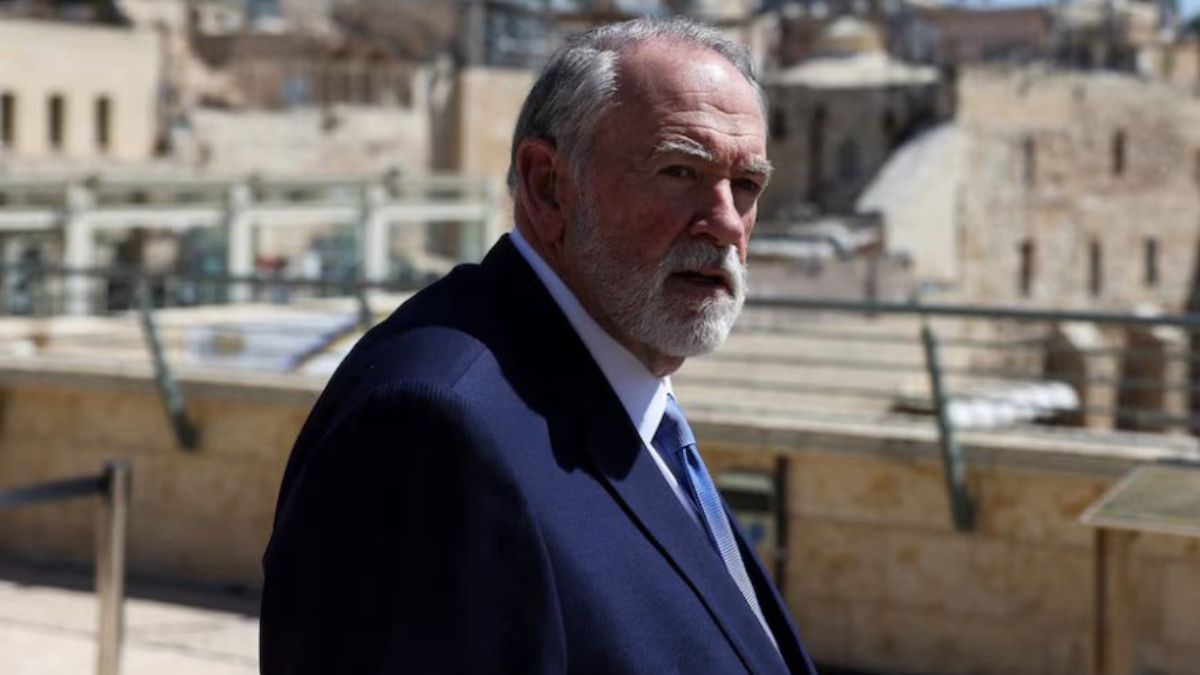US Ambassador Mike Huckabee warns Israel of reprisals over new visa restrictions, rising hostility toward Christian institutions

Tensions between Christian groups and the Israeli government are deepening after US Ambassador Mike Huckabee issued a sharp warning over Israel’s treatment of Evangelical organisations. In a letter to Interior Minister Moshe Arbel, Huckabee criticised the Israeli Visa Department for halting clergy visas and launching sweeping investigations into Evangelical Christian groups, accusing the ministry of arbitrarily withdrawing recognition from institutions that have long operated in Israel.
“As of the beginning of 2025, the Visa Department ceased honouring the recommendations of the Ministry of Religious Affairs and has initiated an independent investigation into each of the Evangelical organisations,” Huckabee wrote. Among the groups affected are the Baptist Convention of Israel, Christian Missionary Alliance and Assemblies of God, all of which have deep historical roots in Israel, some dating back to before 1948. None, according to Huckabee, have received new A3 clergy visas this year.
Major academic institutions, including the Anglican School, IBEX from Master’s University, University of the Holyland and Jerusalem University College, have also been stripped of their religious status for visa purposes. This has forced them to seek B1 Foreign Expert visas instead—a category designed for for-profit enterprises, requiring high annual fees and a salary benchmark far above what religious institutions can typically afford.
Huckabee, himself a prominent Evangelical and long-time supporter of Israel, warned of serious consequences if the policy remains unchanged. “It would be very unfortunate that our Embassy would have to publicly announce throughout the United States that the State of Israel is no longer welcoming Christian organisations and their representatives,” he wrote. He went on to suggest that the US could reconsider visa treatment for Israeli citizens and urge American Christians to rethink both tourism and financial support for Israel.
At the heart of Huckabee’s frustration lies the perception that Evangelical Christians—among Israel’s most vocal supporters globally—are being sidelined. “The Evangelical Christian community is perhaps the strongest and most faithful and fervent supporter of the Jewish people and the State of Israel,” he said. He cited the International Christian Embassy in Jerusalem (ICEJ) as a prime example, noting its role in shifting diplomatic positions in favour of Israel, promoting immigration and supporting humanitarian causes.
The current visa clampdown is unfolding against a backdrop of growing concern within the US over Israel’s handling of Christian sites and communities, especially in the West Bank and Gaza. Huckabee travelled to the Christian village of Taybeh in the West Bank on July 19, expressing solidarity after an arson attack damaged the ruins of the Byzantine-era Church of Saint George.
Residents blamed the attack on Israeli settlers, but Israeli authorities have remained silent.
“It doesn't matter whether it's a mosque, a church, a synagogue,” Huckabee told reporters. “It's unacceptable to commit an act of sacrilege by desecrating a place that is supposed to be a place of worship.” He called the attacks “criminal and terrorist acts” and demanded prosecutions, signalling a rare break from his traditionally unwavering support for Israel’s settlement policies.
Huckabee’s condemnation follows a similarly strong reaction to the death of Palestinian-American Saif Musallet, who was allegedly beaten to death by settlers near Ramallah. While he stopped short of calling it systemic, his remarks represented an unusual rebuke of settler violence from a figure known for defending Israel’s right to expand in the West Bank.
The Trump administration has so far backed Huckabee’s stance. Prime Minister Benjamin Netanyahu was reportedly reprimanded by President Donald Trump following the killing of three civilians in Gaza’s only Catholic church during an IDF strike. The attack, which took place at the Holy Family Catholic Church, left several others injured, including the parish priest who had once received daily calls from the late Pope Francis.
Netanyahu’s office later issued a statement of regret, seemingly under pressure from Washington.
The Vatican confirmed that Pope Leo spoke with Netanyahu on July 18 to underline the need to protect places of worship. “The Pope again expressed his concern for the dramatic humanitarian situation of the population in Gaza, whose heartbreaking price is paid especially by children, the elderly and the sick,” a Vatican statement read.
In a rare move, Cardinal Pierbattista Pizzaballa, the Latin Patriarch of Jerusalem, and Theophilos III, the Greek Orthodox Patriarch, visited the besieged enclave to offer solidarity with the Catholic community. The statement from the Latin Patriarchate said the trip reflected the “shared pastoral solicitude” of the Churches in the Holy Land and their growing alarm over the safety and dignity of Christian life in the region.
Huckabee, usually a fierce defender of Israel, made clear that the accumulating grievances—from visa denials to unchecked violence—could no longer be ignored.
“Surely this is not the relationship the State of Israel wishes to have with its best partner and friend on the planet,” he wrote.
Middle East